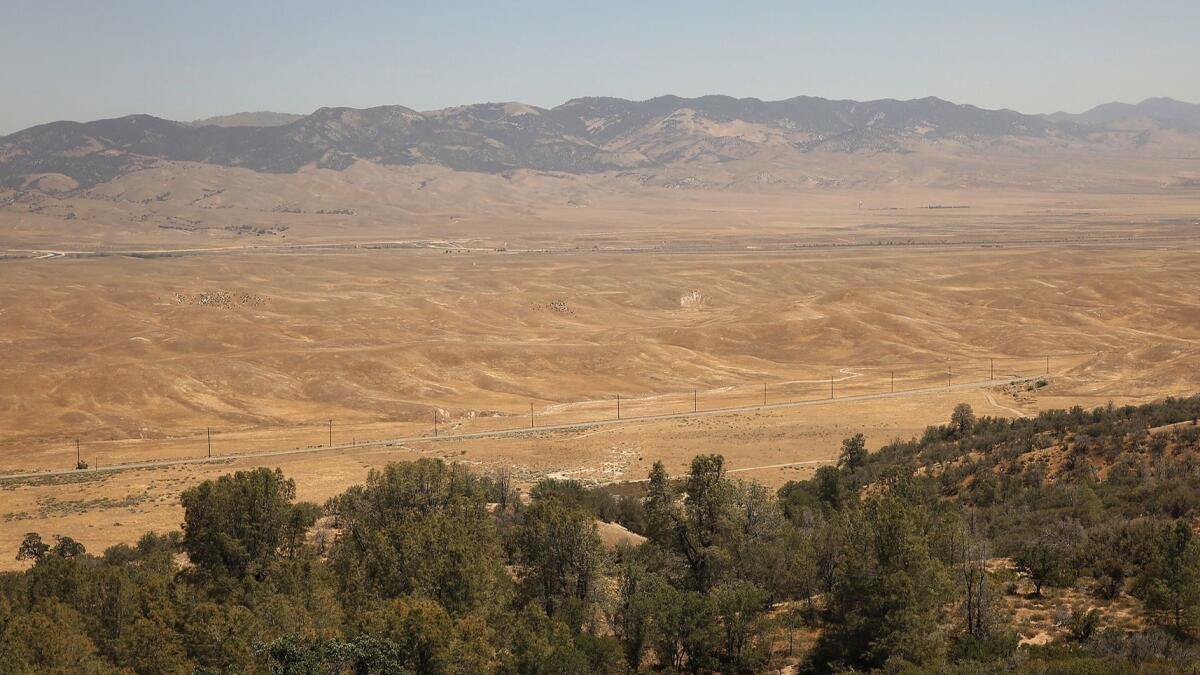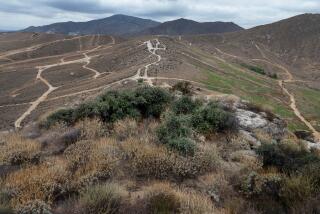L.A. County planners recommend approval of Tejon Ranch development

Planning officials voted Wednesday to recommend approval of the much-debated Centennial development, removing a major administrative hurdle for the proposed 19,000-home community on Tejon Ranch at the northern fringe of Los Angeles County.
The Regional Planning Commission voted 4 to 1 to recommend that the county Board of Supervisors certify the project’s environmental impact report and approve associated land-use plans and permits, subject to some additional conditions.
Commissioner Laura Shell, appointed by Supervisor Sheila Kuehl, cast the only no vote.
The project will now go to the supervisors for final consideration.
First proposed by landowner Tejon Ranch Co. in 1999, the Centennial development has been vigorously contested for years.
Environmental advocates say the project would destroy one of the last native grasslands in California and disrupt the habitat of many animals that inhabit the ranch, including foxes, deer, mountain lions, elk and condors.
They also say development in such a remote part of L.A. County, where providing rail service is cost prohibitive, would generate considerable vehicle travel and greenhouse gas emissions at a time when California aims to lead the nation in reducing such emissions and mitigating climate change.
Project supporters argue that it is consistent with the Antelope Valley Area Plan and would bring missing services to northern L.A. County and provide homes amid a severe housing crunch in the county and state.
Both sides of the argument were again on display at Wednesday’s hearing, the fifth this year. About 50 speakers testified, the majority opposing the project. They noted concerns about not only wildlife and greenhouse gases but also fire and earthquake hazards in the area, the water supply, traffic and affordability of housing.
The proposed site for the project, about 70 miles northwest of downtown Los Angeles, includes areas that sit atop the San Andreas and Garlock faults and is entirely in an area designated by the state as either a “high” or “very high” fire hazard severity zone.
Rebecca Levers, a UC-trained volunteer gardener who does public outreach on landscape management, said that Centennial “will add many miles to the wildland-urban interface … with the people of California underwriting the cost.”
Jennifer Hernandez, an attorney for Tejon Ranch Co., said the project would bring fire stations and new access roads to the area, reducing fire hazard.
Aside from taking public testimony, commission members asked the developer to raise the amount of “affordable” housing to 15% of the total units from 10%, and to commit to 30% local hiring for construction — with “local” comprising three tiers: the Antelope Valley, within 50 miles of the project area, and within L.A. County.
They also asked that trash from the project be hauled north or east rather than south, where population demands are heavier, and that the transit provider with whom the developer partners use zero-emission vehicles.
All five commissioners and the developer agreed to these additional conditions, which will be forwarded to the Board of Supervisors as part of the recommendations.
Where the commissioners got stuck and the exchanges more heated, however, were on proposals to include supportive housing for homeless people, to dedicate some open space on the ranch to a public agency, and to mandate a certain level of medical care at the facility to be built on site.
The four commissioners who voted in favor of the project agreed to forward these outstanding issues to the board with the note that they did not reach consensus on them.
The Board of Supervisors is required to consider the project at two public meetings. An initial hearing is not likely to take place until late 2018 or early 2019.
Twitter: @AgrawalNina
More to Read
Sign up for Essential California
The most important California stories and recommendations in your inbox every morning.
You may occasionally receive promotional content from the Los Angeles Times.











